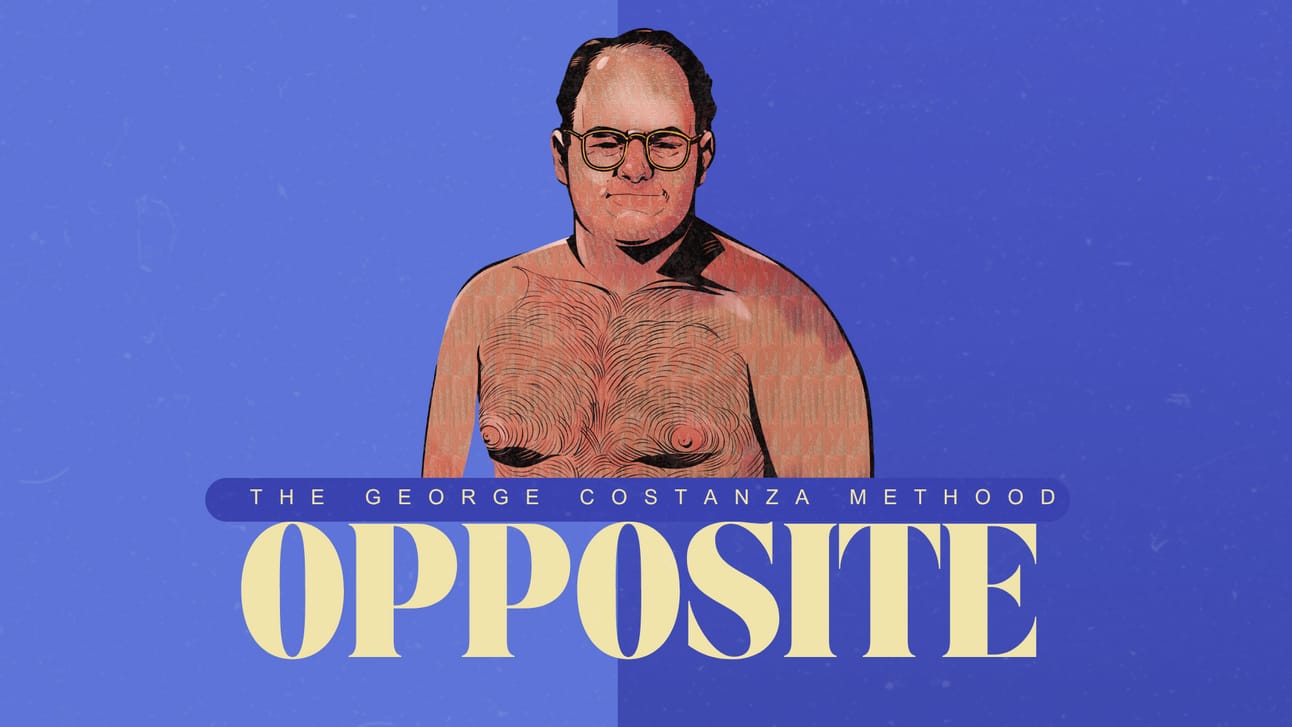
Listen now on Spotify and Apple Podcasts
👋 Hey dumdums,
Last week, my friend Sarah confidently interrupted a dinner conversation to correct someone's "mistake" about penguins.
"Actually," she announced with the satisfaction of someone who'd just watched a nature documentary, "penguins can only be found in Antarctica."
The table nodded appreciatively—until someone gently mentioned they'd just returned from seeing penguins at the San Diego Zoo. And in South Africa. And Peru.
Turns out, Sarah had confused "where most penguins live" with "where all penguins live," but her delivery was so authoritative that even she believed her own expertise for a hot minute.
Watching her face crumble from know-it-all smugness to mortified silence, I realized we've all been there—that peculiar moment when absorbing 3% of available information makes you feel 97% smarter than everyone else.
Turns out:
The most dangerous person in any room is the one who thinks they're the smartest.
Why do we act like we’re smarter than we are?
Your brain is like an overconfident teenager who just got their driver's license.
Psychologists David Dunning and Justin Kruger discovered that people with limited knowledge in a domain consistently overestimate their competence—while experts tend to underestimate theirs.
Their groundbreaking 1999 study found that people scoring in the bottom 12% of logical reasoning tests estimated they'd performed better than 68% of other participants. Meanwhile, top performers assumed everyone else was nearly as skilled as they were.
The kicker? The incompetent can't recognize incompetence in themselves or others—they lack the very knowledge needed to spot their own ignorance.
Want to test this?
Next time you feel supremely confident about something, pause and list three things you definitely don't know about that topic. If you can't quickly name three, congratulations—you've just discovered your blind spot.
But here's the flip side: why do we also tend to think other people are smarter than they actually are?

The Black Turtleneck Trick
Elizabeth Holmes had no medical training, dropped out of Stanford after two semesters, and couldn't explain how her revolutionary blood-testing technology actually worked. Yet for nearly a decade, some of the smartest people in America handed her $945 million and put her on magazine covers. How did a 19-year-old college dropout convince former Secretaries of State, Treasury officials, and Walgreens executives that she'd cracked the code on something that had stumped medical researchers for decades?
The answer lies in our bizarre tendency to confuse confidence with competence. Holmes spoke in an artificially deep voice, wore black turtlenecks like Steve Jobs, and surrounded herself with prestigious board members like Henry Kissinger and George Shultz. She name-dropped Stanford professors and Silicon Valley buzzwords with the kind of unwavering certainty that makes people think, "Well, she must know something I don't." When lab director Adam Rosendorff raised concerns about wildly inaccurate test results, investors didn't question the science—they questioned the questioner.
Even after John Carreyrou's Wall Street Journal exposé revealed the company was using diluted blood samples and traditional machines from other companies, many supporters still believed Holmes was a misunderstood genius. (Wait, it gets weirder—she continued giving interviews insisting the technology worked right up until her 2022 conviction for fraud, suggesting she'd drunk her own Kool-Aid so thoroughly that even prison couldn't cure her delusions.)
Note to self: A confident voice in a black turtleneck can make anyone sound like Einstein.
Tactical Nugget: When someone can't explain their "revolutionary" idea in simple terms, they probably don't understand it either.

Dumb Word of the Day: Sciolist
Sciolist (SY-uh-list) — A person who pretends to be more knowledgeable than they actually are.
Every office has that one sciolist who explains artificial intelligence using blockchain buzzwords they learned from a LinkedIn post, much like how Elizabeth Holmes probably felt explaining her revolutionary Edison machines to investors with fancy degrees. These intellectual peacocks strut around conferences dropping half-understood concepts, hoping nobody notices they're essentially performing elaborate versions of Sarah's penguin proclamation. The word comes from Latin sciolus meaning "superficial knowledge"—which is delightfully ironic since most sciolists probably don't know the etymology of their own condition. Holmes was the ultimate sciolist: someone so skilled at sounding smart that she fooled herself along with everyone else.
Use it in a sentence: "After watching one TED talk about quantum physics, Brad became the office sciolist, explaining parallel universes to anyone unfortunate enough to mention science."
Lean Into Your Limitations Challenge
Name one of your limitations
Now, lean into it instead of fighting it—ask "How can I make this weakness work for me?"
Take Ingvar Kamprad, IKEA's founder. He had dyslexia and couldn't remember product SKU numbers—those alphanumeric codes just looked like gibberish to him.
Instead of pretending he didn't have this limitation or developing some complex workaround, he leaned into it completely.
He started naming products after Swedish places and people instead: BILLY bookcases, MALM dressers, POÄNG chairs.
What seemed like a "dumb" accommodation for his dyslexia became IKEA's most distinctive brand feature—customers found the names infinitely more memorable than "Product #47291-B," and it gave the company a quirky, human personality that no focus group could have designed.
The naming system is so brilliant that each product category follows specific rules: outdoor furniture gets Scandinavian island names, bathroom items are named after Swedish lakes, and rugs take Danish place names.
Your limitation isn't a bug to fix—it's a feature waiting to be discovered.
🎤 YOUR TURN
Reply with your best "I thought someone was smart until..." story. Funniest tale of misplaced intellectual hero worship wins a virtual trophy and the satisfaction of making Sarah feel better about her penguin incident.
Stay wonderfully clueless,
David 🤡
P.S. If you enjoyed this, forward it to someone who definitely thinks they're smarter than they are. (We all know that person.)
Dumbify: Dumb Ideas, Delivered Weekly (You’re Welcome).





